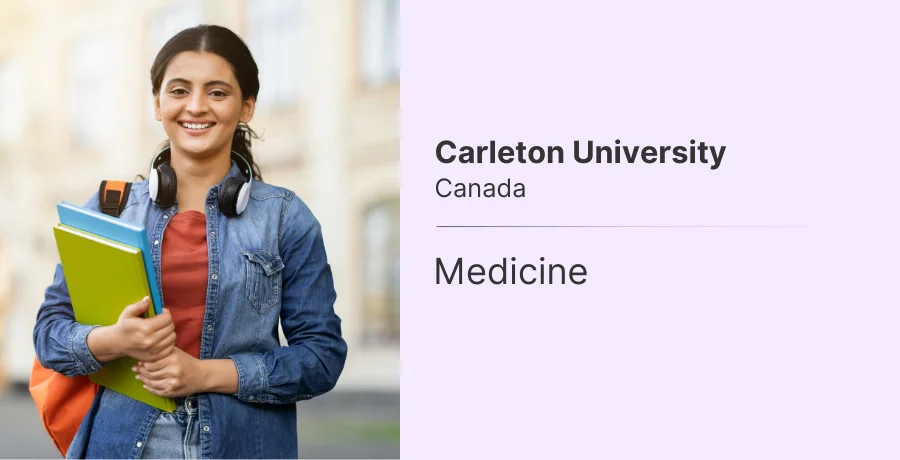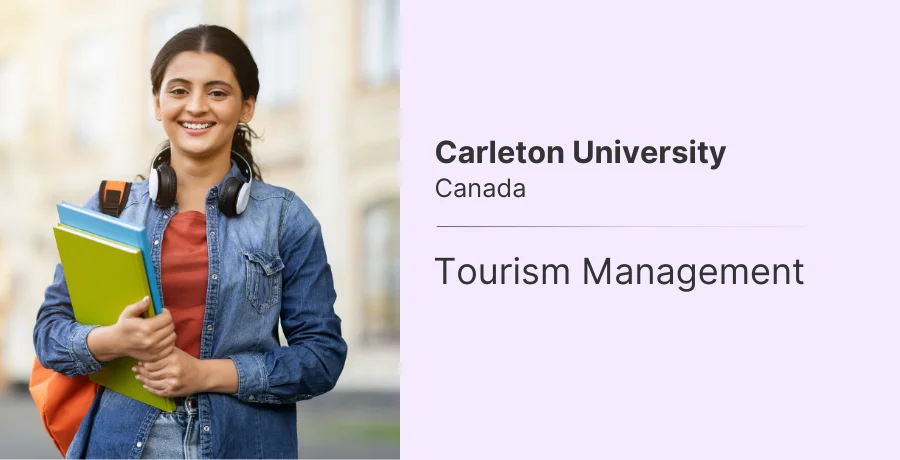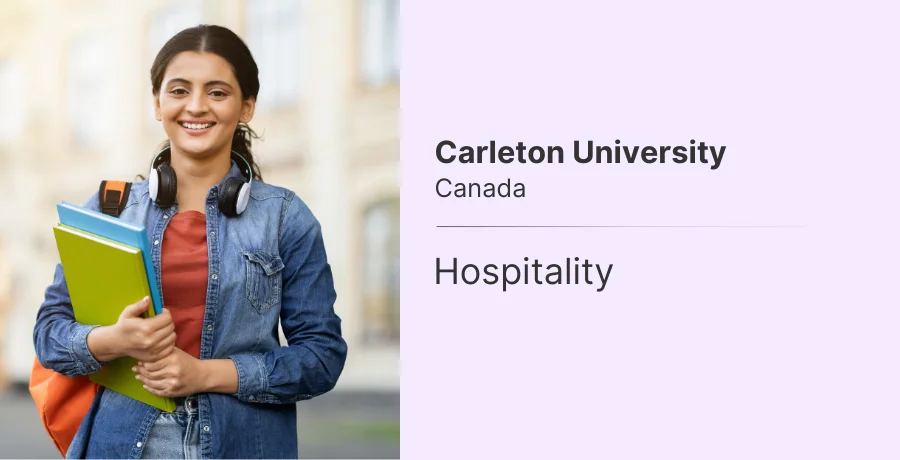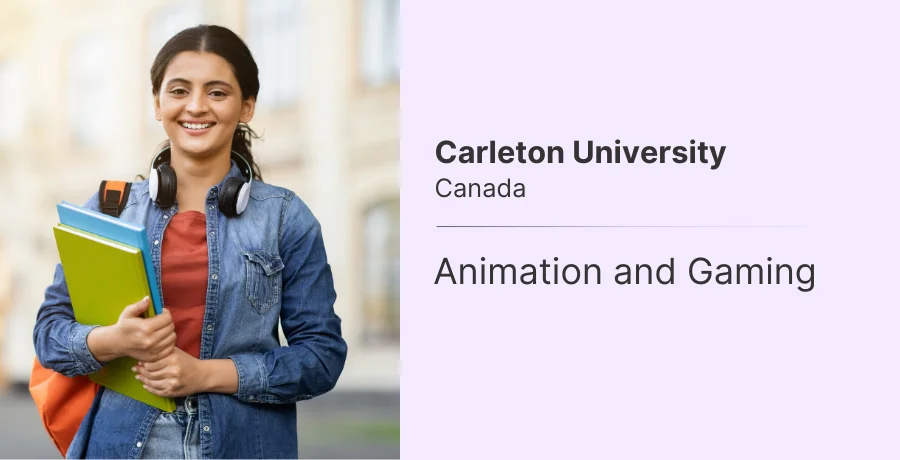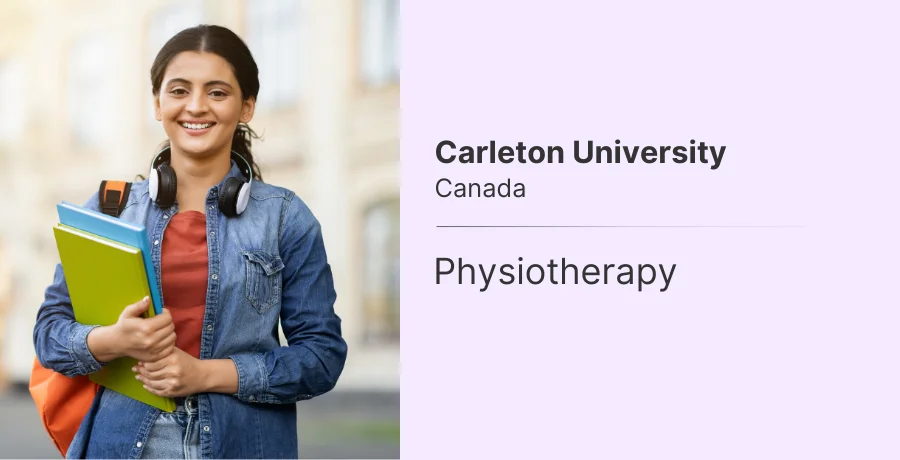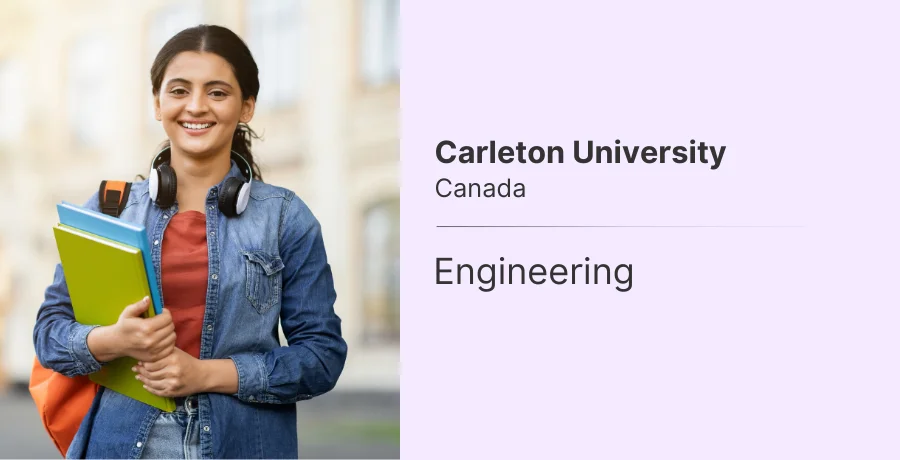Canada is one of the most preferred study-abroad destinations for international students. With world-class universities, career-oriented programs, and a high quality of life, Canada continues to attract thousands of students every year. However, to secure admission to a Canadian university or to get a Canadian student visa, one document that plays a key role is the SOP – Statement of Purpose.
A well-written SOP not only improves your chances of admission but also strengthens your student visa application. This blog is a detailed guide on how to write an SOP for Canada, the ideal format, common mistakes to avoid, and a ready-to-use sample for student visa purposes.
What is an SOP for Canada?
An SOP or Statement of Purpose is a formal essay that explains your personal, academic, and professional background. It discusses your reasons for choosing a particular course, college, and country. Most importantly, it defines your short-term and long-term goals and how studying in Canada helps you achieve them.
When applying to Canadian universities or submitting a student visa application, an SOP becomes a crucial piece of communication. It acts as a self-written explanation to the admissions committee or visa officer, allowing them to evaluate your seriousness, motivation, and eligibility for studying in Canada.
For Canadian institutions and IRCC (Immigration, Refugees and Citizenship Canada), an SOP demonstrates that the student has clearly thought about their future and has a well-defined plan.
Why is an SOP Important for Canadian Study Visa and University Admission?
An SOP is essential because it provides a holistic view of a student’s journey and purpose. Canadian institutions and visa officers do not just rely on academic transcripts or test scores. They want to understand the student's mindset, career goals, and level of commitment.
Here are a few reasons why an SOP is important for Canada:
- University Admission: Top universities in Canada use the SOP to understand how well a student’s profile aligns with the course. A good SOP helps them assess if you will be a valuable addition to their academic environment.
- Visa Approval: For a Canada student visa, IRCC reviews your SOP to check whether your intent to study in Canada is genuine. If your SOP fails to convince the visa officer, your visa can be rejected even if your academic and financial documents are in order.
- Gap Justification and Clarifications: If you have backlogs, academic gaps, or work experience, an SOP allows you to explain these in detail.
- Demonstrates Purpose: A strong SOP shows clarity of thought and helps you stand out in a pool of thousands of applicants.
When Do You Need to Submit an SOP?
An SOP is typically required in two major situations:
- University Admission: Most Canadian universities and colleges ask for an SOP at the time of admission. It is often one of the required documents when submitting your online application form.
- Student Visa Application: While applying for a Canadian study permit, SOP is a crucial document that explains your academic journey and career plans to the visa officer.
In both scenarios, the SOP content should be customized. The university SOP focuses more on your academic fit and goals, while the visa SOP also highlights your financial status, ties to your home country, and intent to return.
Ideal Length of an SOP for Canada
The length of the SOP depends on whether you are applying for university admission or a study permit. Here’s a general guideline:
- University SOP: Ideally between 800 to 1000 words. Some universities provide a specific word count, usually not exceeding two pages.
- Visa SOP: Should be longer, detailed, and around 1200 to 1500 words, sometimes going up to 2000 words depending on your case complexity.
In either case, your SOP should be concise, well-structured, and clearly present your goals.
Proper Format of SOP for Canada
A well-organized SOP follows a structured format with clear sections. Below is the standard format:
1. Introduction
Begin with a short introduction about yourself. Mention your name, where you come from, and what program and institution you are applying to. You may also include a brief line about what inspired your interest in your chosen field of study.
2. Academic Background
Describe your academic history, starting from your high school to your most recent qualification. Include your grades, subjects, achievements, and any relevant projects. If you have any gaps or backlogs, explain them logically.
3. Professional Experience (if applicable)
If you have any work experience, whether internships or full-time jobs, include those details here. Mention your role, responsibilities, skills learned, and how they connect to your desired course.
4. Why Study in Canada?
Clearly explain why you chose Canada over other study destinations. Discuss Canada’s education system, affordability, safety, career opportunities, and cultural diversity. Also mention the benefits of the post-study work permit (PGWP).
5. Why This University and Course?
Show that you’ve researched the university and program in depth. Talk about course modules, faculty, campus infrastructure, internship opportunities, or industry connections. Explain how the course aligns with your career goals.
6. Career Goals and Future Plans
Clearly outline your career objectives. Mention your short-term and long-term plans after graduation. Make it clear whether you plan to return to your home country and how this Canadian qualification will help in your career progression.
7. Financial Background
Mention who will fund your education. Include information about your sponsor’s income, savings, and education loans if any. Attach relevant proof. This section is critical for visa applications.
8. Conclusion
End your SOP with a confident and optimistic note. Reiterate your passion for the course, commitment to studies, and intent to abide by Canadian laws. Thank the officer for considering your application.
Key Tips to Write a Winning SOP for Canada
A compelling SOP is honest, personalized, and reflects your true aspirations. Here are some key tips to write a strong SOP for Canada:
- Use Clear and Simple English: Your goal is to communicate effectively, not impress with complicated vocabulary.
- Be Specific: Avoid general statements like “I want to grow in my career.” Instead, mention specific goals like “I wish to become a supply chain manager in the logistics industry.”
- Don’t Copy from Others: Admission teams and visa officers can easily spot copied content. Make your SOP original.
- Customize the SOP: Tailor your SOP to the course, university, and visa requirement. Avoid sending the same SOP to all institutions.
- Stay Within the Word Limit: Keep your SOP concise and structured. Avoid repetition and filler content.
- Proofread Carefully: Grammar or spelling mistakes can create a bad impression. Revise your SOP multiple times or get it reviewed by a professional.
- Justify Gaps Honestly: If you have any academic or career gaps, address them with valid reasons and show how you stayed productive.
- Demonstrate Intent to Return: Especially for visa SOPs, make it clear that you plan to return to your country after completing your studies.
Common Mistakes to Avoid in Your SOP
Avoid these errors to make sure your SOP does not get rejected:
- Writing a generic SOP without any personalization
- Failing to explain gaps in education or experience
- Mentioning vague career goals
- Providing false or exaggerated information
- Ignoring university or visa SOP guidelines
- Using slang, short forms, or overly casual tone
- Submitting an SOP without proofreading
Sample SOP for Canada Student Visa (General Example)
Below is a sample SOP that can be used as a reference. You should always write your SOP in your own words, but this sample can help you understand the structure and content.
Statement of Purpose for Student Visa – Canada
To
The Visa Officer
Immigration, Refugees and Citizenship Canada (IRCC)
Government of Canada
Subject: Statement of Purpose for Canada Student Visa
I am Rajeev Khanna, a resident of Delhi, India. I am applying for a study permit to pursue a Postgraduate Diploma in Supply Chain Management at Seneca College, Toronto. I have completed my Bachelor of Business Administration (BBA) from the University of Delhi with 76% and now wish to further enhance my knowledge and skill set to contribute meaningfully to the logistics and supply chain sector in India.
During my graduation, I was introduced to logistics and supply chain subjects which captured my interest. After completing my BBA, I worked for 18 months at XYZ Logistics as an operations associate. This job gave me valuable industry exposure, including warehouse management and distribution coordination. However, I realized that to grow professionally, I need formal education in supply chain management.
I chose Canada because of its globally recognized education system, industry-oriented programs, safe environment, and multicultural society. The availability of co-op programs and the Post-Graduation Work Permit further motivated me to choose Canada.
I selected Seneca College after reviewing its curriculum, faculty, and co-op options. The diploma program includes subjects like procurement, logistics planning, inventory control, and international trade. These topics are directly aligned with my interests and future goals. The college’s strong ties with industry leaders will also help me get real-world experience during my course.
After completion, I plan to return to India and join my father’s logistics company. My long-term goal is to modernize the business using global strategies and expand our services beyond regional operations.
My education will be funded by my parents, who have sufficient income from business and property. I have attached all necessary financial documents, including bank statements and income tax returns. Additionally, I have secured a study loan from SBI to cover tuition fees and living expenses.
I am deeply committed to following all the rules and regulations of Canada and will return to my country after completing my education. I respectfully request you to consider my application favorably and grant me a study permit.
Thank you.
Sincerely,
Rajeev Khanna
Top Canadian Universities and Colleges That Require SOP
Many Canadian universities and colleges require an SOP as part of their admission process. Some of the top ones include:
- University of Toronto
- University of British Columbia (UBC)
- McGill University
- University of Waterloo
- York University
- Simon Fraser University
- Concordia University
- Seneca College
- Centennial College
- George Brown College
- Humber College
Each institution may have its own SOP requirements and word limits. Always check the official website before submitting your SOP.
Important Documents to Submit Along With SOP
When applying for a Canada student visa or university admission, your SOP should be supported with proper documentation. Here’s what you may need:
- Academic transcripts and certificates
- Language proficiency test scores (IELTS, TOEFL)
- Passport copy
- Admission letter from Canadian university/college
- Proof of funds (bank statements, financial affidavit, loan sanction letter)
- Work experience certificates (if applicable)
- Travel history (if any)
Make sure all your documents are valid and translated into English if required.
Final Checklist Before You Submit Your SOP
Before you submit your SOP, make sure you:
- Have written in your own words
- Followed the proper structure
- Explained your goals clearly
- Included financial and personal justification
- Proofread the SOP thoroughly
- Customized it for Canada and the selected course
- Attached all relevant documents
Conclusion
Writing an SOP for Canada is one of the most critical steps in your study abroad journey. It gives you an opportunity to showcase your intent, dedication, and eligibility to study in one of the best education systems in the world. A strong SOP can influence both your admission and visa success.
Take your time to write it well, highlight your strengths, and be honest about your journey. With a compelling SOP, you are one step closer to fulfilling your dream of studying in Canada.
If you need help writing your SOP or reviewing your draft, our expert team is ready to assist you. Contact us for personalized support and make your study abroad journey smooth and successful.
FAQS on SOP For Canada:
What should I include if I have a gap year or backlogs in my SOP?
If you have a gap year or academic backlogs, address them honestly in your SOP. Explain the reason behind the gap—whether it was due to health, family issues, or skill-building. Mention how you remained productive during that time. This builds trust and transparency with the reader.
How do I justify choosing Canada over other countries in my SOP?
In your SOP, you can justify your choice of Canada by highlighting its education quality, globally recognized degrees, post-study work opportunities, multicultural environment, safety, and affordability. Be specific and include how these aspects align with your academic and career goals.
Who should fund my education according to my SOP for a Canada visa?
Your SOP must clearly state who is funding your education. It could be your parents, a guardian, yourself, or a financial institution through an education loan. Attach supporting financial documents like bank statements, income tax returns, or loan letters. This assures the visa officer of your financial stability.
Can I write my SOP in bullet points or should it be in paragraph form?
An SOP must be written in paragraph format, not bullet points. It is a formal essay and should follow a logical structure with an introduction, body, and conclusion. Bullet points may be perceived as unprofessional and lazy, reducing your chances of approval.
What happens if I copy someone else's SOP or use AI-generated content without editing?
Copying SOP content from others or using AI-generated SOPs without personalization can lead to rejection. Admissions officers and visa officials use tools to detect plagiarism. An SOP should reflect your personal story, goals, and voice. Always write original content and seek professional editing if needed.


.png)

